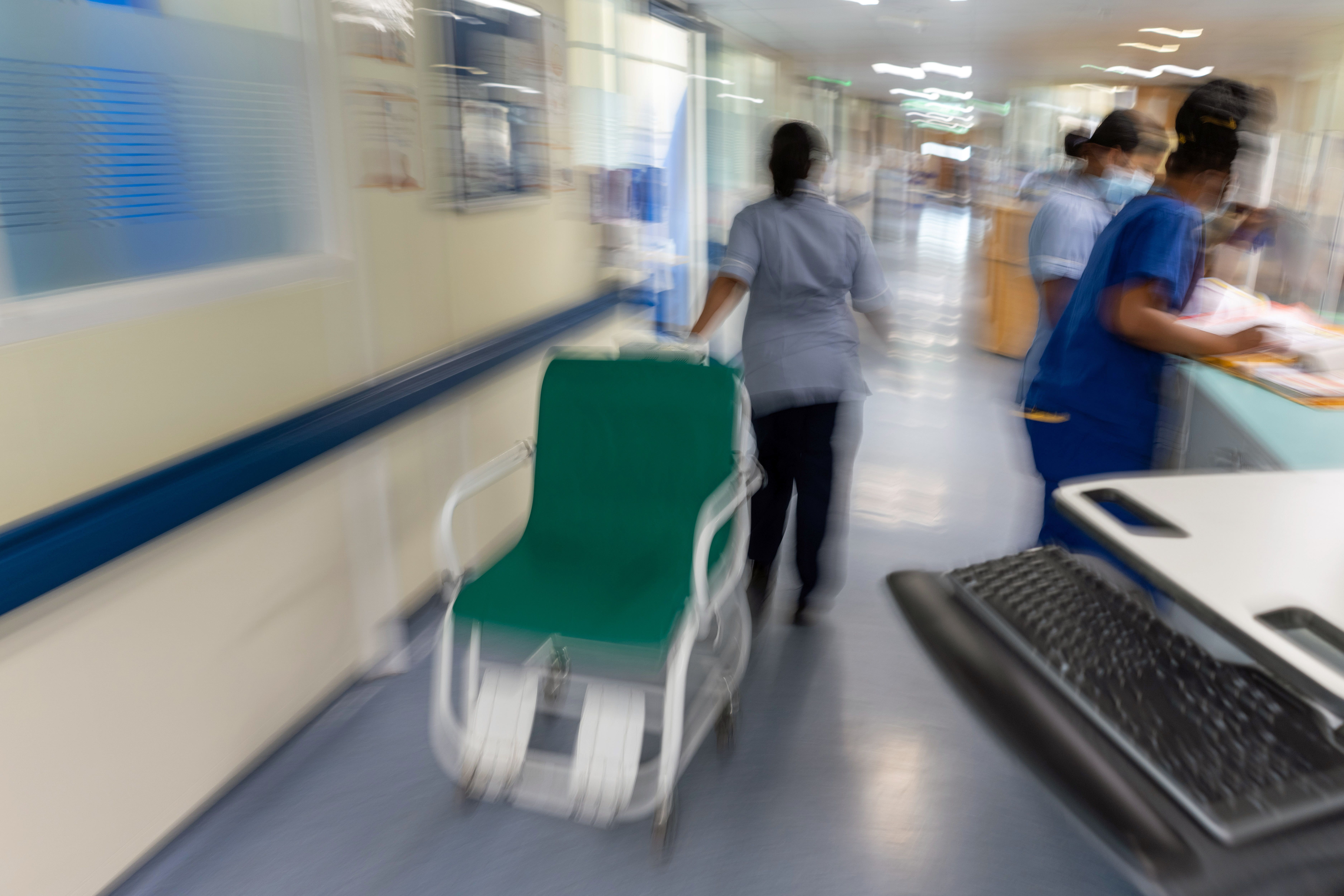Rishi Sunak needs to follow medical advice and better fund the NHS
Editorial: The country’s leading emergency care doctor has issued a stark warning about the crisis in care – the government must act now to cut unnecessary deaths

Probably because they realised that another NHS winter crisis on the scale witnessed in recent years would finally destroy any chance of winning the next election and saving their political careers, ministers have already approved and launched the NHS plan for the coming – entirely predictable – emergency. The fact that they are acting some months in advance does at least offer some hope that the headlines won’t be as grim as must be feared.
Yet it would seem that not all of those who will be closest to the front line are convinced that all will be well. Indeed, far from it. The nation’s most senior physician in the accident and emergency field, Dr Adrian Boyle, tells The Independent that he has little confidence that the plan “will do very much at all to prevent queues of ambulances outside hospitals, or the shameful sight of patients waiting for hours on trolleys in the corridors in A&Es full to bursting ... I have seen headlines suggesting that this plan will see 5,000 new beds and 800 new ambulances. This is just not the case.”
As the president of the Royal College of Emergency Medicine, and having undertaken a detailed examination of the plans, Dr Boyle warns that the government’s efforts to prepare are wholly insufficient. In his view, at least 11,000 additional beds should be provided at hospitals across the country, but the prime minister has only pledged 5,000.
That, in a capsule, is why the plan is not going to succeed to anything like the extent that ministers must hope: a lack of capacity. The government and NHS managers plainly feel that a more efficient use of NHS resources, which remain theoretically vast, will be enough to prevent lost lives as well as political harms. Dr Boyle’s expertise suggests that the problem of balancing supply and demand is much more fundamental than that.
After all, as the recent wave of strikes highlights, there are already unbearable strains on the system, even in these summer months. There is a chronic shortage of staff in health and social care at every level, and there is no end in sight to the recruitment and retention crisis. The situation has made the tensions over pay even more sensitive, because so many healthcare professionals are forced to cover for missing colleagues, which pushes some to leave the sector or emigrate.
This has created a vicious cycle, and has exacerbated the pay disputes. Having a new fleet of ambulances is very welcome indeed, but healthcare is an extremely labour-intensive activity, and without the staff required to maintain the services it provides, it will fail. The winter plan will reduce the number of incidents this winter, but will not prevent some critical incidents from occurring. Even as things stand, last winter, more than 500 excess deaths a week were estimated to be linked to waiting times, with a record number of patients spending more than 12 hours in A&E.
Of course, the strikes are obviously not making life any easier for NHS trusts and patients – a fact acknowledged by the junior doctors, radiographers and consultants who belong to the British Medical Association (BMA). Ideally, the government would this week agree in full the latest recommendations from the independent pay review bodies, and open up further talks with the BMA and other interested parties on improving conditions, training, and retention – and the recently published long-term staffing plan for the NHS is a fine basis for such discussions.
There isn’t much point, either political or clinical, in the government trying to defy market forces in healthcare; but the professionals must also realise that the demand to make up the lost purchasing power of their salaries over a decade is as unrealistic for them as it would be for many other groups of workers. They should certainly not be targeted uniquely for pay restraint, but in a slow-growing economy, there are limits to what can be achieved.
Be that as it may, a combination of the fundamental factors, as explained by Dr Boyle, and – if they persist – strikes by doctors, may well make the winter crisis even more acute than usual. It will mean that Rishi Sunak won’t be able to say he has delivered on the pledge he made in January, when he said that “NHS waiting lists will fall and people will get the care they need more quickly”.
He can use the strikes as a handy political alibi, as he has already been doing; but that is not the whole picture. The public know it, and have been inclined to blame the government for the unrest. A bad winter crisis will look and feel very much like failure.
There is some talk of a cabinet reshuffle, bringing with it a new secretary of state for health and social care to make a better job of settling the strikes and presenting the government’s case than Steve Barclay has managed so far. Whether Mr Barclay or someone else is in office, ministers collectively will be hoping for a mild winter, no nasty new respiratory illnesses, and an end to the strikes.
Mr Sunak should certainly pay attention when Dr Boyle declares that he has little confidence in the government’s plan. Ignoring medical advice is usually harmful.
Join our commenting forum
Join thought-provoking conversations, follow other Independent readers and see their replies
Comments


Bookmark popover
Removed from bookmarks